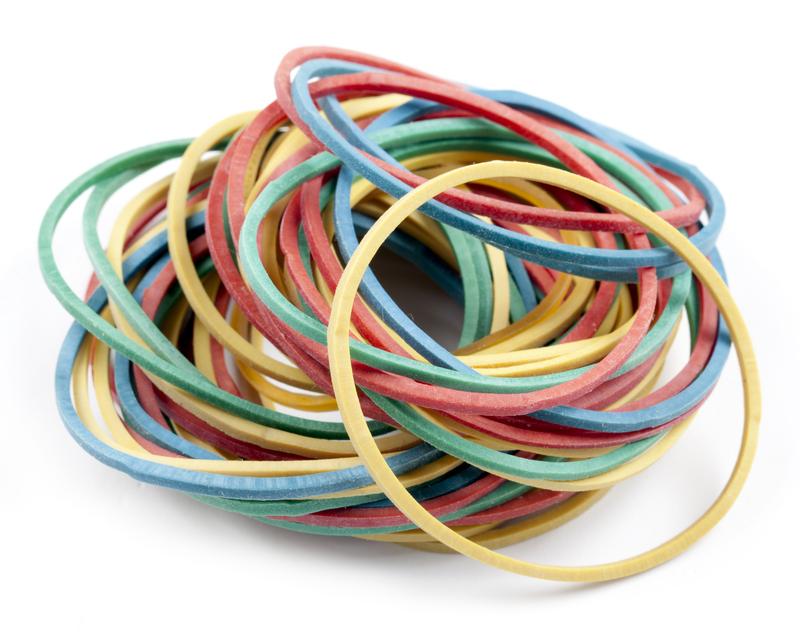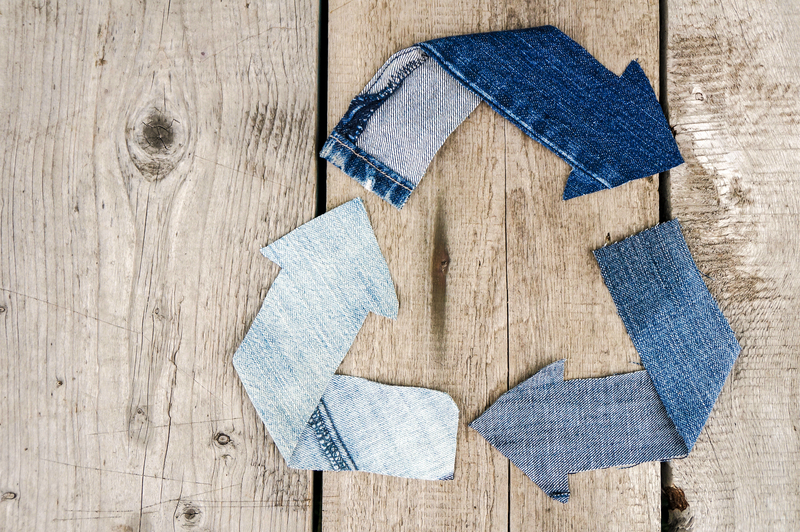Unlock the Cheapest Ways to Get Rid of Bulky Waste Items
Disposing of bulky waste items--such as old furniture, appliances, mattresses, and other large debris--can be a daunting and often expensive task for homeowners and renters alike. Whether you're decluttering, moving house, or renovating, knowing how to get rid of bulky waste items affordably can save both your wallet and the environment. In this comprehensive guide, we'll explore the cheapest and most effective ways to dispose of large unwanted items, highlighting eco-friendly and convenient strategies for every budget.
Understanding Bulky Waste: What Should You Dispose Of?
Before diving into removal options, it's important to define what qualifies as bulky waste. Typical examples include:
- Old sofas, couches, and recliners
- Mattresses and box springs
- Large appliances (refrigerators, washing machines, ovens)
- Broken furniture (beds, desks, bookshelves, tables, chairs)
- Carpets, rugs, and padding
- Exercise equipment
- Televisions and large electronic items
These items don't fit into regular trash bins and are often not accepted through standard garbage collection services. So, what's the most cost-effective way to get rid of your bulky waste?

Why Dispose of Bulky Items Responsibly?
Improper disposal of large waste can result in hefty fines or cause environmental harm. Many bulky items contain hazardous components or recyclable materials, so taking the cheapest instant option--like illegal dumping--can have serious consequences. Responsible disposal is not only about saving money; it's also about community, legality, and environmental stewardship.
The Cheapest Ways to Get Rid of Bulky Waste Items
1. Take Advantage of Local Council or Municipal Pickups
Many cities and towns offer scheduled bulky waste collection services, often for free or a modest fee. Residents may be entitled to a certain number of bulk pickups per year, or there could be community-wide amnesty days where almost anything can be left curbside.
- Check your council's website for guidelines on what is accepted and pickup dates.
- Some municipalities require you to book collections in advance.
- Ensure items are left in a clearly designated area and comply with size or preparation restrictions (e.g., tying, wrapping, separating materials).
2. Use Giveaways and Donation Services
One person's trash is another person's treasure. Donating unwanted but usable furniture and appliances is both a cheap bulky waste removal option and a way to support your community.
- Charities such as the Salvation Army, Goodwill, or local shelters may collect items directly from your home for free.
- Online platforms like Facebook Marketplace, Freecycle, Craigslist, or Nextdoor can be used to offer free items for pickup.
- Be honest in your descriptions and include measurements and condition details. Many users are happy to pick up items themselves, saving you removal hassle and cost.
3. Opt for Recycling Centers
If your items are no longer usable, recycling is the next best thing. Recycling bulky waste can be vastly cheaper than landfill disposal--sometimes even free--especially for items containing metal, electronics, or appliances.
- Scrap metal recyclers often accept washing machines, dishwashers, or exercise equipment and may pay by weight.
- Many towns have designated appliance drop-off days or recycling depots for large electronics (e-waste).
- Check to see if local recycling centers take furniture made of wood, metal, or plastic.
4. Sell Bulky Items to Thrift Stores or Second-Hand Buyers
While not every old sofa will bring in cash, certain bulky household items are in demand in thrift outlets and through local classifieds. Even a small sale can offset disposal costs--or even provide a profit!
- Contact nearby thrift stores--some arrange home pickup, saving you transport effort.
- Online marketplaces make it easy to reach buyers interested in used furniture, working appliances, or materials for renovation projects.
- Be sure to clean and photograph items well for listings. Clearly state pick-up only to ensure the buyer handles removal.
5. Deconstruct or Break Down Bulky Items Yourself
Often, items that are too large for conventional waste bins can be safely broken down. Dismantling bulky waste--like unscrewing furniture or cutting up mattresses--lets you dispose of smaller components:
- Wooden parts and metal frames may be recyclable.
- Foam, fabrics, or plastics can sometimes fit into normal household waste bins over several weeks.
- Always check local disposal guidelines for material-specific instructions.
6. Borrow or Hire a Vehicle for Dump Runs
If local collection isn't available or you have a large quantity of bulky rubbish, doing a dump run can be the lowest-cost solution.
- Recruit friends or neighbors to share costs and fill a vehicle with multiple loads.
- Many transfer stations or recycling centers charge by weight, so dismantling items can reduce fees.
- Some municipalities allow residents a certain number of free dump visits each year--always bring ID or proof of residence.
7. Creative Repurposing or Upcycling
If you're crafty or handy, consider repurposing bulky items for new uses. Old doors can become tables, pallets can be made into garden furniture, and broken appliances might have parts of value.
- Look up upcycling projects online for inspiration.
- Join local maker or fix-it groups who may be interested in collecting materials.
8. Community "Bulky Waste Swaps" or Garage Sales
Some communities organize bulk waste swap events where households can place unwanted items on their curb for others to collect. Garage sales are another way to move old items and allow neighbors to pick up bargains.
- Advertise your offerings through neighborhood apps or social media groups.
- Coordinate with your local council or HOA to schedule a community-wide pickup swap day.
9. Shared Skip or Dumpster Rentals
While renting a skip (dumpster) can be expensive, some neighborhoods or friend groups pool their resources for a shared rental, splitting costs between several homes for maximum savings.
- Compare prices from local skip rental companies.
- Ensure all users know what can and cannot go in the bin to avoid extra charges.
- Some companies offer "man with a van" services for a flat fee, which can be cost-effective for bulky but lightweight items.
Frequently Asked Questions: Cheap Bulky Waste Disposal
Can I just put bulky waste out with my regular garbage?
Generally, regular garbage collection does not accept bulky items. Leaving them curbside may lead to fines. Always check with your waste authority before putting anything large out for pickup.
What if I can't move the item myself?
Some charities or junk removal services offer free or low-cost pick-up for those unable to move items due to disability or age. Alternatively, local community groups or neighbors may be willing to assist you.
Is it legal to leave bulky waste items at the side of the road?
Unauthorized dumping is illegal. Only leave items out during officially designated collection windows or with permission from your local authority.
Is burning or burying bulky waste at home a cheap disposal method?
Absolutely not--both are unsafe and unlawful methods that can endanger your health and carry severe fines. Always use approved disposal methods.
Maximize Savings When Disposing of Bulky Waste
- Plan ahead: Bundle items for fewer trips or collections.
- Sort materials: Recyclables separated from landfill waste may reduce tipping or collection fees.
- Ask neighbors: Coordinating together can save everyone money (e.g., shared skip hire, group dump runs).
- Stay informed: Regularly check local government announcements for free disposal events or policy changes.
Unlocking the cheapest ways to dispose of bulky rubbish is often about combining several methods:
- Donate what can be reused.
- Recycle what you can't give away.
- Only pay for removal or landfill as a last resort.

Eco-Friendly Bulky Waste Disposal: Don't Forget the Environment
While saving money is important, choosing eco-conscious disposal methods conserves resources and cuts down on landfill waste. Plus, recycling programs for appliances or mattresses may be subsidized by governments, making them the cheapest legal options.
- To dispose of white goods (fridges, freezers), seek e-waste recycling programs.
- Mattress recycling schemes exist in many cities, often for a token fee less than landfill disposal.
- Avoid burning or dumping, which harms local habitats and water supplies.
Conclusion: Find the Perfect Cheap Bulky Waste Solution for You
With a little research and community effort, it's entirely feasible to get rid of bulky waste items affordably--sometimes even for free. Whether you choose donation, recycling, resale, or a responsibly planned dump run, you can declutter your home, help others, and stay within budget.
Remember: the best and cheapest way to get rid of bulky items may depend on your location, the condition of the items, and your ability to transport them. Always start by exploring local options and consider combining several strategies for maximum savings.
Ready to clear your space and save? Explore council pickups, donation services, and recycling today--unlock the best ways to dispose of your bulky waste on a budget while making a positive impact on your community and the planet.
